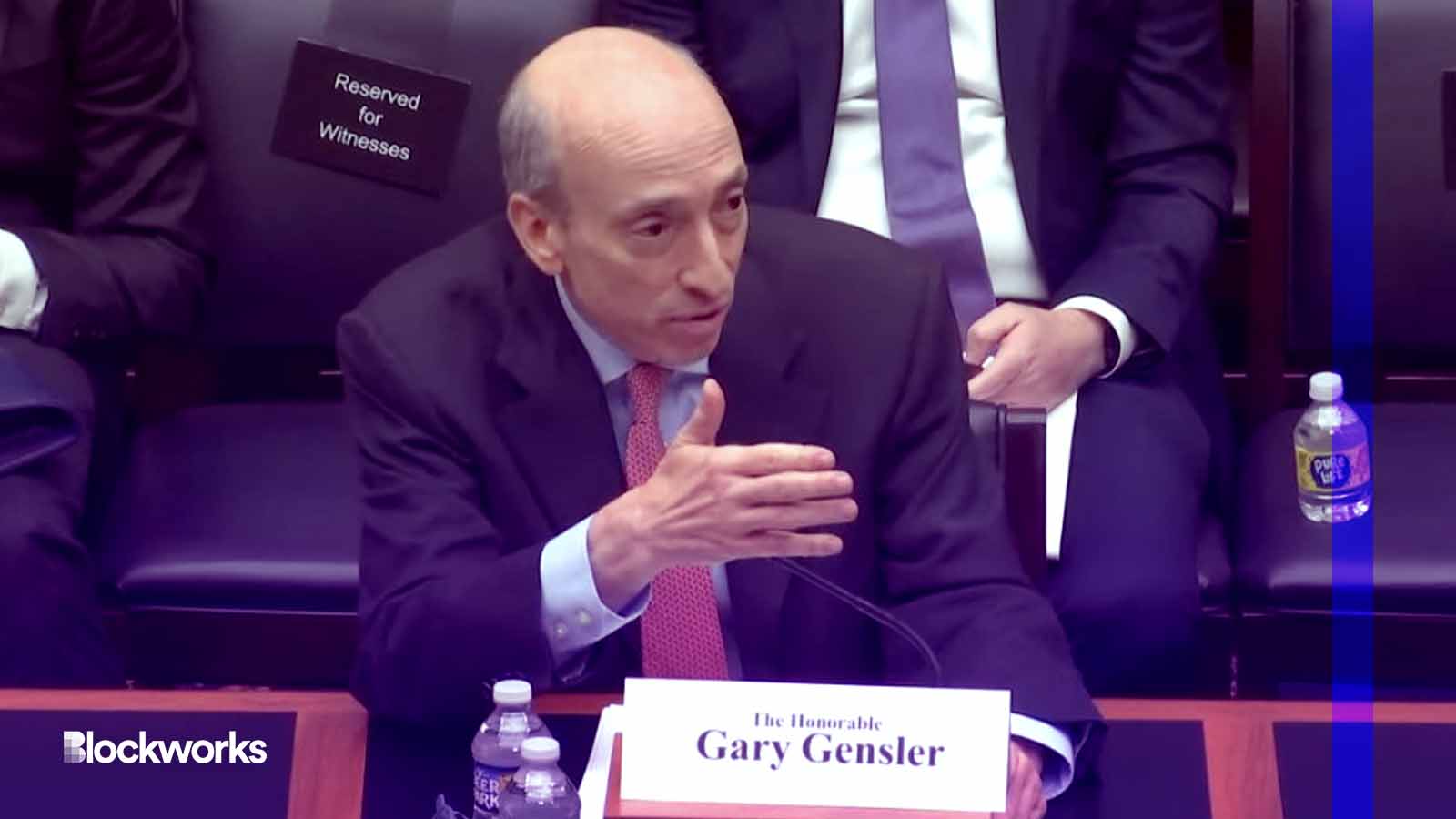The anti-Gensler movement is picking up steam on both sides of the aisle
A handful of Democrats are joining the anti-Gensler and pro-crypto movement

SEC Chair Gary Gensler | Screenshot from US Senate livestream
US Securities and Exchange Commission Chair Gary Gensler is facing tough questions from Washington, with both sides of the aisle joining in.
A bipartisan group of representatives wants Gensler to answer for his agency’s failure to approve a spot bitcoin ETF, even after courts sided with Grayscale, one of several issuers trying to launch the product.
Reps. Tom Emmer, R-Minn., Ritchie Torres, D-N.Y., Wiley Nickel, D-N.C., and Mike Flood, R-Neb., penned the letter Tuesday, a day before Gensler appeared before the House Financial Services Committee for his oversight hearing.
“During your time at the SEC, you have consistently stated that digital asset firms should ‘come in and register’ with the SEC,” the Reps. wrote in the letter. “Market participants have relied on your statements and have filed applications for a regulated spot bitcoin ETP. Following the Court of Appeals’ decision, there is no reason to continue to deny such applications under inconsistent and discriminatory standards.”
Tuesday’s letter is not the first time congressional leaders have taken it upon themselves to question the agency.
Weeks before teaming up with Nickel and their Republican colleagues, Torres wrote his own open letter to Gensler, criticizing the agency’s “regulation by enforcement” tactics.
“In light of the SDNY’s landmark decision in the Ripple case, [Gensler] must reassess its reckless regulatory assault on the crypto industry,” Torres wrote on X, formerly Twitter, along with the letter.
In June, Republican crypto advocates Reps. Warren Davidson and Tom Emmer introduced a bill to remove Gensler as the SEC’s head.
“U.S. capital markets must be protected from a tyrannical Chairman, including the current one,” Davidson wrote on X, formerly Twitter, after the bill was unveiled. “I’m introducing legislation to fix the ongoing abuse of power and ensure protection that is in the best interest of the market for years to come.”
How the SEC engages with crypto-related issues has been a topic of discussion between lawmakers, on both sides of the political spectrum, and federal agencies for years.
In 2021, Sen. Elizabeth Warren, D-Mass., sent a letter to Gensler asking if Congress needed to step in to help the SEC obtain more authority over crypto markets. In his response, Gensler said he was willing to work with Congress as “we need additional authorities to prevent transactions, products, and platforms from falling between regulatory cracks.”
Warren has maintained a predominantly anti-crypto stance, especially in her role on the Senate Banking Committee. Teaming up with Republican Roger Marshall, a junior senator from Kansas, she co-sponsored the Digital Asset Anti-Money Laundering Act of 2023. Some industry advocates say this legislation could effectively kill crypto in the US.
The bill tasks the SEC and Treasury to create a “risk-focused examination and review process” for crypto securities.
What’s next
Gensler, who was President Biden’s pick to lead the SEC, is currently serving a five-year term set to end in June 2026, but some speculate the anti-crypto agency head could be ousted sooner.
If the White House goes red in 2024, Gensler will almost certainly be looking for a new gig. Former President Donald Trump, who currently leads in the Republican primary polls, already faced legal action from the agency earlier this year when his SPAC partner opted to settle with the SEC for $18 million over alleged securities violations.
Fellow Republican candidate Vivek Ramaswamy, currently ranking third in the polls, has expressed disdain for Gensler – and almost every other agency head in the US – arguing that unelected officials have no place holding this much power. Ramaswamy vowed to cut the federal government by 75% during an appearance at the Mainnet conference in New York earlier this month.
Coinbase CEO Brian Armstrong said in a recent interview that Gensler could be out in 2025 if a Republican wins the White House in 2024, and he’s keeping an eye on how current candidates engage with crypto.
“[Presidential candidates] see it as an opportunity to challenge — the policies of the current administration has had in downstream effects with the regulators, that they view as not in line with what the American people want,” Armstrong said at the Goldman Sachs Communacopia and Technology Conference earlier this month. “This could become a hot topic in the presidential race in 2024.”






